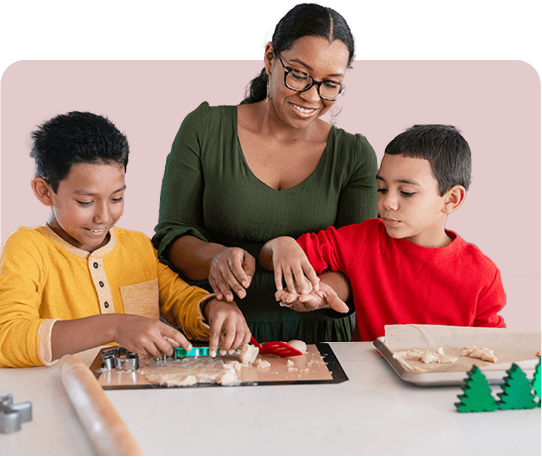Don't limit yourself. You can go as far as your mind lets you.
The only limits to the possibilities in your life tomorrow are the 'buts' you use today.

TRENDING TOPICS FOR YOU
While it’s easy to get caught up in the big moments—anniversaries, vacations, heartfelt conversations—the heart of a strong relationship lies in the small, everyday actions.
While it’s easy to get caught up in the big moments—anniversaries, vacations, heartfelt conversations—the heart of a strong relationship lies in the small, everyday actions.
At its core, being a supercommunicator in the classroom isn’t about having all the right answers or perfectly managing every interaction. It’s about creating a space where students feel safe to express themselves, share their struggles, and celebrate their growth.
The classroom is a unique space, isn’t it? It’s a whirlwind of energy, questions, and connection. Some days feel like magic, while others test your patience like no other. But what makes teaching so rewarding is the potential it holds—for growth, for breakthroughs, and for those little moments that remind you why you do what you do.
While it’s easy to get caught up in the big moments—anniversaries, vacations, heartfelt conversations—the heart of a strong relationship lies in the small, everyday actions.
It’s important to remember that parenting is a process, not a destination. You won’t get it right every time—and that’s okay. What matters is showing up, trying again, and being open to learning alongside your child.
Let’s be real—if you’re approaching 2025 with the same routines and habits as 2024, it’s just another year with a new number. True change happens when we rethink how we approach our everyday lives. By shifting our mindset, we turn the "ordinary" into something extraordinary.
It takes courage to look at where we’ve been, acknowledge it for what it is, and still choose to move forward. And yet, without that step, the idea of a "new year" remains just that—a calendar change, not a life change. Because if we carry the same old patterns into January, it’s not really a new year, it’s just a continuation of the old one.
As we embrace the beauty and busyness of the holiday season, let’s remember that the most meaningful gift we can give ourselves is grace. Grace to rest when we’re weary. Grace to say “no” when we need to protect our peace. Grace to let go of perfection and embrace the moments that truly matter. When we nourish ourselves with kindness, patience, and understanding, we fill our cups to overflow, allowing us to give more freely and joyfully to those around us.
In a world that’s becoming more complicated and materialistic, I want her to understand that happiness doesn’t come from “more.” What I noticed was that giving didn’t feel like a chore to her. It felt exciting. And it reminded me that kids don’t need us to teach them how to be kind—they’re naturally compassionate. They just need us to give them the space to act on it.
Ads constantly tell them that happiness comes in neatly wrapped boxes, and society fuels the idea that success is about having more. But deep down, we know that isn’t true. No toy, no gadget, no flashy gift can replace the deeper joy that comes from connection and purpose.
When kids start to experience the joy of giving, they’re learning more than just generosity, they’re also learning about connection, empathy, and the difference they can make in someone else’s life. This lesson is one that kids feel right away because giving is such a joyful experience.
Gratitude is recognizing the big and little things that make life brighter—even when times are hard. It’s a way to help our kids build resilience. And it’s not always easy, but that’s exactly when gratitude can become a grounding force, finding joy in the steady, comforting parts of life that they can rely on which they can carry with them through life's ups and downs.
I think most of us, as parents, share a similar worry these days: how do we keep our kids safe in a world where screens and technology have become so deeply embedded in everything?
We watch over them so carefully when they’re out in the real world, yet online—where the risks can be just as serious—we tend to overlook the need for boundaries.















While it’s easy to get caught up in the big moments—anniversaries, vacations, heartfelt conversations—the heart of a strong relationship lies in the small, everyday actions.